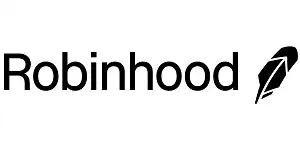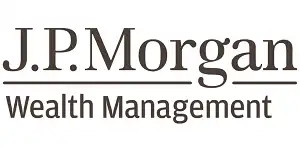The best online brokerage accounts for beginners have no commissions to trade stocks, no minimum account or deposit requirements, and allow you to make trades conveniently right from your phone. Whether you want to save for retirement or focus on the best stocks to buy, you’re going to need a brokerage account before you can get started.
Our top pick, Robinhood, is a well-known intuitive stock trading and investing app that offers zero-commission trades on thousands of investments that’s perfect for investing beginners. Robinhood features one of the best mobile trading apps for trading stocks, crypto, ETFs, and even IPOs some companies starting with as little as $1.
Overview: Best online brokerage accounts for beginners
- Our pick: Robinhood
- Best for Chase customers: J.P. Morgan Self-Directed Investing
- Best for variety of accounts: Fidelity
- other brokerage accounts that are also great
Robinhood: Best mobile trading app
Robinhood’s app is designed for digitally-native investors. With just a few swipes, you can buy stocks and begin building your own portfolio full of the best stocks to buy.
Robinhood is a popular stock trading and investing app that offers zero-commission trades on thousands of investments, including stocks, starting with as little as $1.
With beginner-friendly features and easy-to-read charts, Robinhood is great for new investors and there's advanced features even more seasoned investors can appreciate.
- Commission-free trading
- Easy to use, well-displayed dashboard
- No obligation or minimum account balance
- No bonds or mutual funds
- Crypto fees can be more transparent
Robinhood is an intuitive stock trading and investing app that offers zero-commission trades on thousands of investments. You can open an account with Robinhood for as little as $1 and with their easy to use app begin trading right from your phone, including fractional shares, which are partial shares instead of whole shares. That means you can buy $10 worth of Apple or Tesla if that’s all you want to invest. Robinhood doesn’t give you the full suite of investment options you might find at other firms if you’re an advanced trader, however. You can’t buy mutual funds or bonds, for example.
Orders can be placed quickly, with shortcuts to buy amounts between $1-$100, and prices are displayed prominently for each asset. Advanced traders can access more order types, with access to limit, stop, stop-limit, and trailing stop orders for buying or selling an asset. Robinhood is one of the most popular options in recent years because it’s a simplified trading experience that’s good for beginners.
» MORE: Open a Robinhood account or read our full Robinhood Review
J.P. Morgan Self-Directed Investing
Though it won’t drown you in features, J.P. Morgan Self-Directed Investing lends tremendous convenience to existing Chase customers and invites beginners into the fold with a crisp, intuitive platform and robust customer support.
J.P. Morgan Self-Directed Investing offers Chase clients tremendous convenience and new investors an intuitive investing platform with unlimited commission-free online stock, ETF and options trades.
It's ideal for those who are interested in learning the market with no investment minimums attached.
- Exceptional customer support
- Simple, intuitive interface
- Easy integration for existing Chase customers
- Advanced traders may want additional functionality
- Portfolio Builder requires $2,500 min.
J.P. Morgan Self-Directed Investing is Chase Bank’s investment platform meaning a huge draw is the smooth integration with Chase online and Chase Mobile. It also means you also get access to Chase’s renowned customer support team. Their staff are generally considered to be experienced and knowledgeable.
J.P. Morgan Self-Directed Investing doesn’t charge commissions on trades (with the exception of options contracts) and doesn’t require an account deposit of any size on day one to open an account. There are also some powerful tools that will help you build a diversified portfolio.
» MORE: Open a J.P. Morgan Self-Directed Investing account or read our full J.P. Morgan Self-Directed Investing Review
Fidelity: Best for variety of accounts
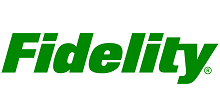
The variety of account options Fidelity provides makes it a good one-stop-shop for investors. You can have a taxable brokerage account at Fidelity, along with your retirement accounts, an HSA, and a 529 College Savings Plan.
Fidelity is one of the most well-known financial services companies out there. In addition to offering taxable brokerage accounts, Fidelity also has a number of tax-advantaged options, like health savings accounts (HSA).
One of Fidelity’s key selling points is its zero-expense-ratio index funds. An index fund typically tracks a specific index in the stock market, like the S&P 500. It gives you the opportunity to invest in a basket of top-performing companies without having to pick individual stocks. While most index fund managers typically charge a small fee, Fidelity is the first company to offer index funds with no fees.
Fidelity also offers a suite of educational resources to help new investors build a comprehensive portfolio to meet their personal financial goals.
» MORE: Read our full Fidelity Review
Also great
There is a crowded marketplace out there so finding the best online brokerage for your needs may go beyond our three favorites. Beginners seeking alternative investments, a more social platform, active investing from the start or a more set-and-forget style of investing can stack up our top recommendations against these alternatives.
Public
With Public, you can invest in stocks, ETFs, options, bonds, Treasuries, crypto, ETFs, music royalties and alternative assets—all in one place. Plus, get access to a social community, AI-powered insights and even a High-Yield Cash Account that earns 5.1% with up to 5M FDIC insurance.
Public is a investing platform with mobile app that has a wide range of offerings and features beginners will appreciate.
With Public, you can invest in stocks, bonds, Treasuries, crypto, ETFs, music royalties and alternative assets—with access to a social feed—all in one place.
- Commission-free trading on stocks and funds
- Fractional shares with low minimums
- High-Yield Cash Account that earns 5.1% APY
- Resources for beginners and community
- Does not support all account types
- No mutual funds
You expect the commission-free trading of stocks and ETFs (and Public offers that) but when you open a brokerage account you usually don’t expect everything Public has to offer. There’s features like themes that help categorize stocks in a more user-friendly manner, fractional trading so you can invest in pieces and a whole social aspect to Public with a community of traders.
And the range of offerings? Bitcoin? Yes, you can buy, sell and hold crypto with Public securely. There are also alt investments such as sneakers, video games, sports cards. You can even invest in music royalties that pay dividends.
Public itself is free but if you want access to more features like free trades pre-market and after-hours then you may want to sign up for Public Premium. It’s costs $10/month or $96 annually, but you can get it for free if your account has a market value of $20,000 or more.
» MORE: Open an account with Public or read our Public review
Vanguard
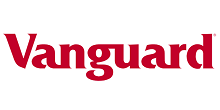
Vanguard is one the leading brokerage firms out there thanks to its famous founder, Jack Bogle. Fans of Vanguard — known as Bogleheads — follow Jack’s simple investing philosophy of letting compound interest grow over time, making Vanguard one of the best platforms for passive investors.
Vanguard is a pioneer of low-cost and best-performing index funds. Investors use index funds to save money without having to develop technical expertise or make active trades. The “set it and forget it” mindset works well with Vanguard, where investors can benefit from compounding interest without paying expensive management fees. One downside is Vanguard is a bit old school with no-frills and doesn’t offer a lot of the features a modern-day active trader may prefer.
» MORE: Interested more in a robo-advisor? Check out our Vanguard Digital Advisor review
E*TRADE
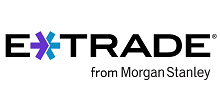
E*TRADE is a financial services company that is part of Morgan Stanley. It offers $0 commission trades and an advanced trading platform that makes it perfect for active traders.
The platform gives you access to a wide variety of investment options including stocks, bonds, ETFs, and mutual funds. Active traders have access to a suite of data tools including the Power E*TRADE app. This software offers traders access to real-time data feeds and the ability to build custom graphs.
Charles Schwab
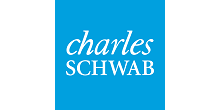
Charles Schwab invests in research to build in-house expertise that anyone can use, no matter how much money they have. If you have questions or want to learn more, an expert is only a phone call away.
Charles Schwab offers both taxable and tax-advantaged brokerage accounts. Charles Schwab also offers its own index funds tracking a variety of indices, including the S&P 500, large-cap stocks, the bond market, and REITs. With low expense ratios, Schwab’s index funds are a cost-efficient passive investing option.
TD Ameritrade was acquired by Charles Schwab. Existing accounts will or already have been transitioned over with this merger.
Interactive Brokers
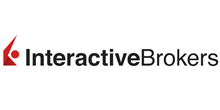
Interactive Brokers is a longstanding favorite trading platform of professionals and serious individual investors.
IB features commission-free stocks, powerful trading tools and access to foreign markets and cryptocurrency trading with two pricing models: Pro and Lite. Interactive Brokers Lite will appeal to most casual traders.
It may not be the perfect selection for beginners looking to open a brokerage account right now but you may want to consider it if you want to be able to trade options, on foreign markets, or on margin at some point. With the IB platform, clients from over 200 countries can trade on 150 global markets from a single unified platform. You can also trade Bitcoin, Ethereum, Litecoin and Bitcoin Cash.
The competition
These are some more competitors in the list of online brokerage account options that you may find more appealing depending on your investment level.
Ally Invest
Ally Invest is the trading platform affiliated with Ally Bank. It offers no-cost trades that appeal to both new and experienced investors.
Ally Invest offers a variety of account options depending on how involved you want to be. You can choose to open a self-directed account, invest in a robo-advisor portfolio, or work with Ally’s wealth management team. This gives you the flexibility to invest on your own or to capitalize on Ally Invest’s in-house expertise and move money easily between all your accounts if also also bank with Ally.
Ally is fully digital, so if you’re looking for in-person support this brokerage firm might not be the best for you.
Webull
If you’re a casual trader looking for an easy-to-use, no-frills trading platform, Webull could be a good fit for you.
Webull provides a very readable dashboard of the top stocks and best-performing industries. Its mobile trading app gives you access to a range of investment options — including crypto — with no trading fees.
Webull also offers fractional shares, making it possible to invest with little money. Webull doesn’t offer the educational resources, however, so while it may be best for casual investors, beginning investors hoping to learn more may benefit from the top options on our list.
How I chose these brokerage accounts
I chose these brokerage accounts based on three core factors:
- Securities available to investors
- User experience
- Fees
My logic: If a platform is hard to use and has a lot of fees you’re probably not going to benefit from it. Plus, a brokerage firm with limited offerings can make it hard to build a well-diversified portfolio. A good beginner brokerage account should have almost no fees, a variety of investment options to choose from, and a good user experience. An offer for opening an account is also a great incentive to sign up.
Who are the best online brokerage accounts for?
The best online brokerage accounts are for individuals who want to buy, sell and hold investment securities online through their desktop, tablet, and/or mobile device (iOS or Android).
A brokerage account is one of the first steps for someone looking to build their investment portfolio and take advantage of potential long-term growth, or alternatively short-term goals depending on your account type.
What is a brokerage account?
A brokerage account is an investment account where you can buy and sell securities. These are things like stocks, bonds, ETFs, mutual funds, and sometimes even crypto.
Most brokerage firms allow you to open an account online. Many even have apps where you can get started right from your phone.
You also don’t need a lot of money to get started either. Once you fund your brokerage account, you can begin trading stocks. An important thing to note: The brokerage firm doesn’t buy securities for you. After you fund your account it is up to you to begin investing. If you don’t, your cash will just sit there collecting dust.
How do brokerage accounts work?
Brokerage accounts work like bank accounts with extra benefits. Like a bank account, you can deposit money into them. But instead of letting the money just sit there and collect interest, a brokerage account allows you to buy assets, like stocks or bonds.
Whatever assets you purchase through your brokerage account are yours to keep. At any time you can sell them (although there are some tax implications when you do this) to turn them back into cash. Some assets earn dividends that generate passive income.
You can have as many brokerage accounts as you want and there is no limit to how much money you can invest (except for tax-advantaged accounts). There are no fees to open a brokerage account, although there may be fees to make trades or to work with a financial advisor.
Types of brokerage accounts
The brokerage account you’re probably most familiar with is your retirement account. Whether you have an employer-sponsored 401(k) or your own IRA, retirement accounts are actually brokerage accounts.
Aside from retirement accounts, there are a couple of other types of accounts you’ll want to be aware of.
A self-directed brokerage account is one where you buy your own stock picks. A good example of this type of account is Robinhood. Unlike your retirement account, there are no tax benefits with self-directed brokerage accounts.
If the idea of picking your own stocks is overwhelming, you can opt to work with a financial advisor. These are individuals who act as brokers and are paid on commission to make trades on behalf of their clients. Sometimes they are paid a percentage of the total assets they manage. Other times they are paid on a per-trade basis.
When you work with the best financial advisors you’re essentially paying for their expertise. They pick stocks and build a portfolio based on their knowledge of the market. The more active your advisor is, however, the more it will cost you.
An alternative to using a human financial advisor is to work with the robo-advisors. These robo-advisors differ from brokerage accounts, as they’re are proprietary algorithms that use technology to manage your portfolio. They basically automate the entire investing process. You may want to start with a robo-advisor and level up to making your own trades with one of these best online brokerage accounts.
One of the benefits of using one of the best robo-advisors is that you’re provided a a pre-picked portfolio while leveraging investing strategies like tax-loss harvesting. You essentially get a lot of the expertise a human advisor would give you at a fraction of the cost.
These different types of accounts each come with their own costs and benefits. You’ll need to first identify your overall investing goal before figuring out which type of account will work best for you.
What is a brokerage fee?
Brokerage fees are commissions a broker charges to make trades. Sometimes you are charged a flat fee while other times you are charged a percentage of the assets your broker holds for you. The best online brokerage accounts are transparent with what and when you’re being charged.
Where you’ll find the most fees is if you work with a full-service broker. These individuals are paid a fee for the trades they make on behalf of clients. You’re not actually paying them just to make trades though. You’re also paying for the research they do to build your portfolio and the expertise they bring to help you manage your investments.
How many brokerage accounts can I have?
You can have as many brokerage accounts as you would like. In fact, you’ll probably want to have several different accounts depending on your goals.
A retirement account, for example, is going to be different than an account where you buy and sell stocks frequently. Retirement accounts are tax-advantaged and because of that, they have contribution limits. If you use an employer-sponsored retirement plan, you might not even get a say in who brokers your account.
A taxable, self-directed account where you buy and sell individual stocks is different than a retirement account. For a self-directed account, you might prefer to use a brokerage firm with an easy-to-use app to make daily trades.
Are brokerage accounts FDIC insured?
No, brokerage accounts are not FDIC insured. But that’s not exactly a bad thing.
The FDIC — or Federal Deposit Insurance Corporation — protects deposit bank accounts (aka your checking and savings account). They don’t protect money invested in the stock market or other investment instruments.
Those investments are protected by a different agency called the Securities Investor Protection Corporation (SIPC). The SIPC will intervene if a broker goes bust. In that event the SIPC will either transfer your portfolio to another firm, or they will work outright to rebuild it, buying new assets to make up for any that are lost.
Like the FDIC, SIPC does come with some stipulations. For one, a brokerage has to be a member that qualifies for SIPC coverage. And that coverage is limited to up to $500,000 per customer.
How are brokerage accounts taxed?
Brokerage accounts are taxed differently depending on the type of account you have and how long you hold assets for.
Retirement accounts are usually tax-advantaged. In the case of a traditional 401(k), this means that you won’t pay taxes on your account contributions, but you will pay taxes later when you withdraw money in retirement. However, in the case of a best Roth IRA investment account, you will pay taxes on your account contributions, but won’t pay taxes on the withdrawals in retirement.
Self-directed brokerage accounts don’t come with any tax benefits. You invest money that has already been taxed and you pay taxes on your investments when you sell.
Selling an asset triggers a taxable event. If you’ve held it for less than a year it is considered a short-term capital gain. This is taxed at your current income bracket.
If you hold an asset for a year or more, however, it will be counted as long-term capital gains. You’ll pay between 0% and 20% depending on your tax bracket. Long-term capital gains taxes are usually lower than income taxes, which is why it’s advised to hold onto a stock for at least a year before selling it.
Summary: Best online brokerage accounts for beginners
A brokerage account gives you the ability to put your money to work. Most firms offer access to securities like stocks and bonds, while others give you access to cost-effective index funds. These are ways you can grow your money beyond collecting interest in a savings account.
You can have as many brokerage accounts as you would like, and those accounts can vary depending on your goals. If you’re not sure where to get started, set a financial goal — like saving for retirement — and find a brokerage firm that gives you the best bang for your buck with respect to that particular goal.
